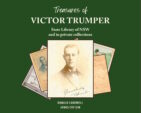Golden Boy
Archie Mac |Published: 2009
Pages: 304
Author: Ryan, Christian
Publisher: Allen & Unwin
Rating: 4 stars
Kim Hughes, if he is remembered now it is for ‘tearing up’ when he resigned the Australian Captaincy, after a battering summer from the bouncer happy, all conquering West Indies team of the 1980s.
He is also dismissed when it comes to naming the best Australian batsman of the period; his relatively poor Test average of just 37.41 in seventy matches sees to that.
But those who watched his uniquely exquisite, down on one knee cover drive, or his hooking (not the pull shot we see now) off his unprotected nose against some of the fastest bowlers in the history of the game, can never forget Kim Hughes the batsman, and nor should they, as no other batsman has ever quite played like him, not even the ‘Master Blaster’ Viv Richards, for Hughes did not rely on force, his was immaculate timing.
Christian Ryan has captured Hughes the batsman, you want to run out and buy a highlights tape of his three great innings and tell everyone ‘I watched him bat, forget about his average, Kim was something else, he was beyond numbers.’
And if capturing the batsman was all the author managed then this would still be a quality read, but Ryan delves deeper and pursues Hughes the boy – you have the feeling he never really grew up into a man – who loved batting and desperately wanted to be liked by everyone. It is apparent that Hughes was close to a breakdown before he resigned the captaincy, and reading about the pressure he was under this is not surprising. No media manager, no national coach, no support at all. Menzies said to his wife that ‘he was the last of the amateur Prime Ministers,’ and so Hughes was the last of the amateur Australian cricket captains. His successor, Border was to be given much greater support, which has continued to grow for each new captain ever since.
The main reasons for the failure of Hughes the captain are quickly apparent, messers Lillee, Marsh, Ian and Greg Chappell. And this is the only real failing of the book, as Ryan was unable to secure interviews with Hughes and his family, and out of his tormentors only Greg Chappell agreed to answer the authors questions.
Christian Ryan also shows a great knowledge of cricket history being one of the rare cricket writers to mention the fact that Australia has had four wicket keeper captains – Gilchrist, Jarman, Blackham and the rarely mentioned William Murdoch. Unfortunately on the very same page he informs us that Blackham was ‘the one captain in Test cricket’s first hundred years to enforce a follow-on and lose.’ The follow-on at the time was compulsory.
After reading the book you really feel that Kim Hughes had no chance, with players throwing punches at the captain on the field for not providing a third-man, to Marsh and Lillee undermining him in the change rooms, to the Chappell brothers criticisms off the field. Even net sessions were divisive with Lillee bowling entire spells of bouncers at ‘The Golden Boy.’
Like a lot of modern cricketing books the narrative tends to jump around like a drunken clown on a pogo stick, which may make it hard to follow for those who did not live through the era discussed, but this is more then made up for in the quality of the narration and the authors clever ability to find the most memorable highlights of the era, including the best summing up of the constant advertisements that became the standard after Packer took control of the game. Scyld Berry summed it up when he wrote it was like ‘reading War and Peace with cartoons after every page.’
This is the first cricket book I have perused for 2009, and if ‘Golden Boy’ is any indication we are in for a bumper year of cricket books, bring it on!






Leave a comment